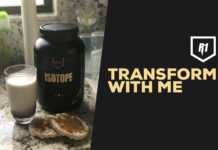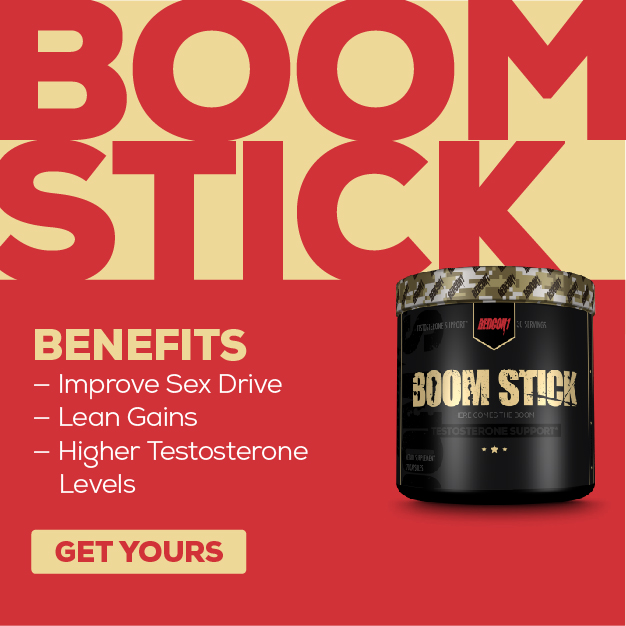
The Drive To Succeed: Your Brain on Dopamine
Most people are not entirely sure what their cup of coffee does, all they really know is that they need it. Got a tough task ahead? “Let me just make some coffee first…” But what is it that gives coffee its charm? & what is it that Dopamine gives its charm?
Coffee contains the world’s most popular stimulant, caffeine. Caffeine has a whole host of beneficial effects, most notable is its ability to promote wakefulness (adenosine receptor modulator) as well as increased focus, motivation and wellbeing. These last three benefits stem from the fact that caffeine is effective at increasing the amounts of the neurotransmitter dopamine in the brain. When it comes to experiencing pleasure and motivation, dopamine is the king of neurotransmitters. But what is dopamine really?
What is Dopamine?
Neurotransmitters are your brains messengers. They transmit stimuli across nerve gaps and either elicit inhibitory effects (for example GABA) or stimulating effects (Dopamine). That exhilarating feeling of excitement you can experience from video games? Yes, you can thank dopamine for that. Dopamine is responsible for all feelings of pleasure from the senses, everything from stuffing potato chips to having sex. However, dopamine is not all about enjoyment; it has other benefits too:
Motivation and Concentration: Remember how boring all those classes was back in high school? Ever tried to do something you don’t enjoy just to end up procrastinating for hours? Well, concentration is enhanced when the prefrontal cortex has the right levels of neurotransmitters, and dopamine plays a crucial part in that. When dopamine levels are high, it means you are enjoying what you are doing and often experiencing a state of flow, where things just seem to flow through with ease. In other words, the more dopamine you have when you try to do something, the easier and more focused you will be at the task. When you do something, you really don’t enjoy doing or have a lack of dopamine, that feeling of rather going off to procrastinate comes from your brain seeking more dopamine stimulation. Having a hard time to focus when you are surrounded by a bunch of beautiful ladies? Well, that’s dopamine to flooding your synapses and cueing you to run off and do “other” things.
Drive: without dopamine, there would simply be no wish to do anything, pure apathy. This can clearly be seen in a model of drug addiction, from example stimulants such as cocaine or amphetamine where there is a down-regulation of dopamine receptors. Without the drug, there is no willpower to do much of anything. In other words, in a healthy brain, you can prime yourself for doing tasks more effectively by making sure you take good care of your dopamine levels. Do the most boring tasks when they are at their highest concentrations in the brain, for most people that would be early in the morning just after waking up. Ever heard somebody say that the first 3 hours of your day are considered the most productive? Well, this is why!
Dopamine and Resistance Training: Testosterone and Growth Hormone
Another aspect of dopamine that most would be interested to know about is its effects on hormone levels. Testosterone and dopamine share a relationship in that more of one, also equals more of the other. Both are considered to be highly correlated with sex drive and libido, hence if you suffer from low libido but your hormone levels check out fine? Well, then it is most likely your dopamine that is the problem. We will talk about issues that can arise with fluctuating low dopamine later in the article.
Dopamine boosts the expression of GnRH (gonadotropin releasing hormone) which is the hormone that signals the testes to produce more testosterone. Do doctors check dopamine levels of patients with low testosterone? Unfortunately, not, the medical community is often lagging behind 5-10 years with the research, which is why it is important to educate yourself.
Dopamine is also a reliable booster of growth hormone. Growth hormone is responsible for all tissue growth and healing in the body. Want to build more muscle? More growth hormone will help. However, it is more complicated than just drinking coffee and thinking you will grow an inch on your biceps from the dopamine stimulation.
Dopamine stimulates the production of hormones, but constant dopamine stimulation is not possible since that would desensitize your receptors. However, boosting your dopamine at the right time, such as post workout, can greatly help increase your growth hormone response from the exercise and improve your ability to build muscle. More about this later.
The Side Effects of Low Dopamine Levels
The catch 22 with dopamine is that no matter what you do, it is not possible to keep them consistently elevated. Ever noticed how those 2 shots of expresso feel fantastic the first couple of days, and after that you suddenly find yourself downing 4 in one go to feel anything? Yeah, that’s desensitization talking.
To be able to keep a healthy response to dopamine stimulation, you need to cycle that stimulation. Let’s say you were stranded on a deserted island for 20 years, then all of a sudden you get a whiff of a woman perfume. Yes, that would be enough to get you going, however being surrounded by the most beautiful women in the world 24/7 will eventually bore you, that’s how evolution has created your brain, and it is important to understand.
Lack of stimulation will increase sensitivity, and increased stimulation will lower sensitivity, everything is good in moderation! Your brain will always be seeking more stimuli; this is how humans are able to evolve, always chasing the next thing. This is also why consumerism, blockbusters movies and constant high-speed internet porn is slowly sucking out the soul and intelligence of the human race, but we’ll save that one for another article.
Let’s say you’re a coffee addict with a severe gambling problem (this is dopamine related as well), what issues might arise concerning your dopamine?
Low Dopamine Symptoms:
- Low libido
- Inability to experience joy or pleasure
- Depression
- Memory loss
- Inability to concentrate
- Chronic procrastination
- Fatigue, lethargy
At it’s worst, Parkinson’s Disease is a model of chronically low dopamine levels and even results in disruption of motor functions. Parkinson’s Disease is a condition of continuous degradation of your dopamine receptors and your body’s ability to use dopamine. It is thought to be caused by genetic factors and triggered by poor lifestyle and nutritional choices.
Luckily for most, low dopamine levels are a passing condition that often just last for a short period because of poor lifestyle choices such as overindulgence, chronic stress, overtraining or poor nutrition. Better yet, there are plenty of tools and techniques that can be used to take control of your dopamine, and this is the core subject of this article.
The Dopamine Diet
Dopamine is created from the amino acid Tyrosine which is both available in foods as well as supplements. The body converts Tyrosine into the dopamine precursor L-Dopa which then passes the blood brain barrier and eventually increases dopamine levels in the brain. Many dietary choices can influence neurotransmitter concentrations in the brain. A diet high in carbohydrates and sugars will stimulate dopamine receptors too much and eventually start to desensitize them. It is many researches option that this is how Parkinson’s Disease eventually begins to evolve.
A diet high in healthy fats and protein, however, such as the ketogenic diet, has been seen to optimize the dopamine pathways and be beneficial for your brain. This is why the ketogenic diet is widely known as a diet that comes with profound mental benefits. It is also known to be able to stop seizures, which is a condition of too high sensitivity to dopamine and an inability to control this sensitivity. So the ketogenic diet indeed also has a regulatory action on dopamine pathways both able to increase and decrease transmission.
Also, the specific food choices you make can influence your availability of building blocks for neurotransmitters such as dopamine. The following foods are high in Tyrosine for example:
- Almonds
- Apples
- Avocados
- Bananas
- Watermelon
- Animal products (meat, milk, cheese, etc.)
- Dark leafy vegetables
Some other notable beverage choices that increase dopamine are:
- Chocolate
- Tea
- Coffee
However, the above beverages mostly influence dopamine by stimulating the brain to produce more, and remember what we discussed before; chronic stimulation eventually results in degradation of receptors and their function. Tea is an interesting one though since it contains a non-essential amino acid called Theanine, which boosts dopamine but is also calming, balancing the stimulating effects of the small amounts of caffeine also present in the plant. This is why tea is not considered a stimulant in most people’s eyes and rather something you drink for relaxation.
Probiotics:
There is also research that suggests that the gut microbiome also plays a role in dopamine regulation. As we know the ratio of different microorganism in the gut is dependent on your food choices, where “bad” bacteria often take over and colonize when you feed it lots of junk such as sugar. One of the metabolites of “bad” bacteria’s, lipopolysaccharides, has been shown to cause a reduction in dopamine in the brain. This clearly illustrates the connection between everything in the body as a whole, but many people already experienced this in ways such as digestion related issues during periods of stress. Digestion should have nothing to do with the looming pressure rof that deadline at work right? Wrong.
Mucuna Pruriens:
A recurring superstar in many of our articles here at Redcon1 is the amazing Velvet Bean (Latin, Mucuna Pruriens). The reason why Mucuna is so special is that it is one of the only natural sources of pure L-Dopa. As we mentioned previously, L-Dopa is the primary building block for neurotransmitters such as dopamine and other catecholamine’s (adrenaline, noradrenaline, etc.). Supplementing with Mucuna will directly increase dopamine levels, and it has been extensively studied as a treatment for Parkinson’s Disease.
As we also previously mentioned about dopamine’s ability to stimulate hormone production, the effects of Mucuna on hormones is hence no exception. Mucuna has been shown to both increase growth hormone as well as increase production of testosterone by stimulating the release of luteinizing hormone from the pituitary. This explains Mucuna’s strong effects on increasing libido and also boosting mood and feelings of pleasure. You could view the herb as an overall enhancer of your senses. Mucuna is one of the core ingredients in our sleep formula Fade Out because you guessed it, dopamine also has a function in making sure you get a proper nights rest. Taking Mucuna before bed not only helps increase the length and depth of your sleep, it will also increase your testosterone levels while you sleep!
We also include Mucuna in our nootropic formula Mental Trigger, but more on that in a minute.
Cold Showers, aka James Bond Showers
A very effective way of reversing desensitization is subjecting your brain to more sensations, sensations of cold that is! Bond had it right all along. Cold showers can help you feel more manly, happier and improve your performance and stress tolerance. This works by stimulation of dopaminergic transmission pathways in areas of the brain known as the mesocorticolimbic and nigrostriatal pathways. In other words, it is not by stimulating the receptors themselves, rather, by increasing the stimulating effect of the transmission. Signal strength if you will.
This pathway in the brain is closely rated to emotions and feelings of happiness and wellbeing. We like to explain it simply in this way, if you subject your brain to though challenges such as ice baths, it will grow stronger and this strength translates into other areas of life, such as your emotional wellbeing. Studies have even shown cold showers to be able to treat depression.
Nootropics and Stimulants
Most pharmaceuticals and supplements which are said to boost cognition does that through exerting their effects on the levels of dopamine, dopamine receptors or signal transmission in dopamine pathways. There are many interesting supplements you can use to enhance dopaminergic function, but remember to be careful with stimulants, more is not always better when it comes to stimulation.
The following are our favorite ingredients when it comes to enhancing dopaminergic function in a safe and sustainable way:
Theanine + Caffeine:
If you’re a lover of caffeine, the best gift you can give yourself is a bottle of Theanine. We briefly discussed this amino acid earlier in the article as the substance in tea that makes it less stimulating and more calming. However, don’t get this wrong because Theanine is no sedative. What Theanine does is counteracts the adverse effects of caffeine, such as increased heart rate, jitters, a rise in blood pressure, etc., while still enabling you to maintain the energy and focus you get from it. In other words, it makes everything about caffeine better! We suggest a dose of 100mg-200mg with a strong cup of coffee.
Teacrine:
Talking about tea, here is another amazing compound that comes from a rare variant in the tea genus. Teacrine is the patented name for 1,3, 7, 9-tetramethyluric acid, a purine type analog found in the Camelia assamica variety of tea plant. What makes Teacrine unique is that it too can provide much of the dopamine stimulating effects of caffeine, but without any of its side effects. It also blocks adenosine receptors in the same way as caffeine and hence, promotes feelings of wakefulness and alertness. However, the absolutely amazing thing that makes Teacrine one of the best stimulants, is that it is entirely void of tolerance. Simply put, you cannot build a tolerance to the effects of Teacrine, which enables you to use it as much as you want! We are huge fans of Teacrine and have included it in our nootropic supplement Mental Trigger, as well as our fat burner product Double Tap.
Noopept:
This is the current absolute superstar in the world of nootropics. Noopept, a peptide derived smart drug that is related to the popular nootropic Piracetam, was researched and developed in Russia. It acts in a similar way to Piracetam, just at an incredible 1000 times the potency. It appears to be able to repair damaged cells and receptor sites which are why similar to Mucuna; it has been researched for use in the treatment of Parkinson’s Disease. Noopept stimulates dopamine receptors in the brain without causing downregulation. It is a psychostimulant that does not affect other areas of the body such as the heart, with its stimulating action. This makes it a very safe supplement and the perfect core ingredient in a nootropic stack for dopamine function. Noopept is included in our Mental Trigger formula.


















